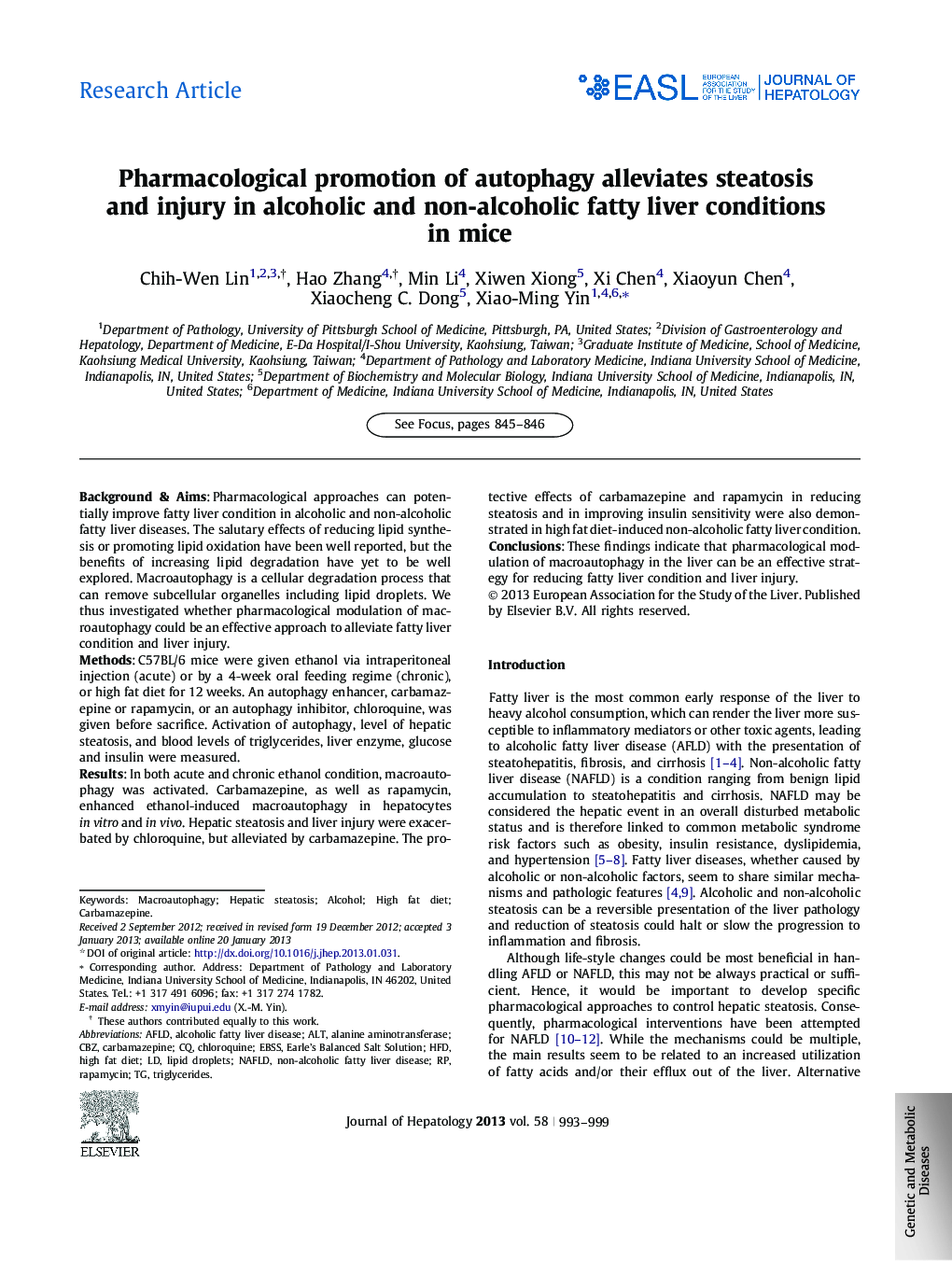| کد مقاله | کد نشریه | سال انتشار | مقاله انگلیسی | نسخه تمام متن |
|---|---|---|---|---|
| 6105057 | 1211144 | 2013 | 7 صفحه PDF | دانلود رایگان |
Background & AimsPharmacological approaches can potentially improve fatty liver condition in alcoholic and non-alcoholic fatty liver diseases. The salutary effects of reducing lipid synthesis or promoting lipid oxidation have been well reported, but the benefits of increasing lipid degradation have yet to be well explored. Macroautophagy is a cellular degradation process that can remove subcellular organelles including lipid droplets. We thus investigated whether pharmacological modulation of macroautophagy could be an effective approach to alleviate fatty liver condition and liver injury.MethodsC57BL/6 mice were given ethanol via intraperitoneal injection (acute) or by a 4-week oral feeding regime (chronic), or high fat diet for 12Â weeks. An autophagy enhancer, carbamazepine or rapamycin, or an autophagy inhibitor, chloroquine, was given before sacrifice. Activation of autophagy, level of hepatic steatosis, and blood levels of triglycerides, liver enzyme, glucose and insulin were measured.ResultsIn both acute and chronic ethanol condition, macroautophagy was activated. Carbamazepine, as well as rapamycin, enhanced ethanol-induced macroautophagy in hepatocytes in vitro and in vivo. Hepatic steatosis and liver injury were exacerbated by chloroquine, but alleviated by carbamazepine. The protective effects of carbamazepine and rapamycin in reducing steatosis and in improving insulin sensitivity were also demonstrated in high fat diet-induced non-alcoholic fatty liver condition.ConclusionsThese findings indicate that pharmacological modulation of macroautophagy in the liver can be an effective strategy for reducing fatty liver condition and liver injury.
Journal: Journal of Hepatology - Volume 58, Issue 5, May 2013, Pages 993-999
